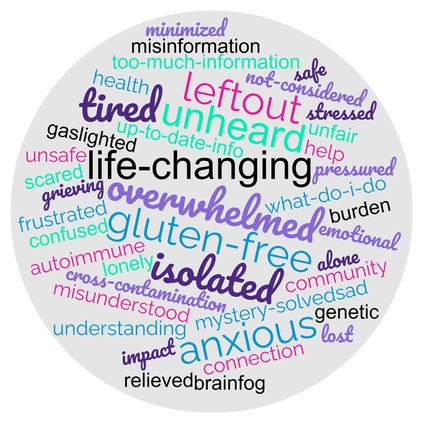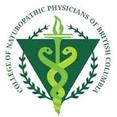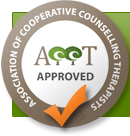Celiac Is RealDespite media often painting celiac disease as flaky, as well as health articles listing very basic seemingly minor symptoms such as an upset tummy and diarrhea, the reality of celiac disease is that it is a complex autoimmune disease that needs to be taken seriously. Navigating a life long gluten-free diet is challenging. Constantly having to discuss if celiac disease is serious can be pretty stressful. It is important that celiac disease is taken seriously and acknowledged especially while being treated. Often having someone on your treatment team that has your back with accurate and up to date information on celiac disease is a crucial part to help you advocate for yourself. I find that when I am able to help patients with celiac disease monitor their lab results and diagnostics, help keep track of their symptoms, and give them safe treatment options, as well as provide counselling, it can take a load off their plate, improves their mental health, and it helps them feel more supported and cared for.
There Are Many Symptoms Aside From The Basic Symptoms Often ListedUnfortunately, there are also hundreds of possible symptoms and co-morbidities and many long-term health risks that can be exhausting to find recognition and treatment for. There is also a lot of misinformation from old and outdated ideas. It’s important to have someone on your team who keeps up to date on the latest information. Celiac patients often need a thorough screening of symptoms to track their progress which many health professionals don’t have the time to go through. Often celiac patients struggle with more health issues than what is just related to celiac disease and the gluten-free diet. I find naturopathic medicine and my training as a mental health professional provides a greater variety of options beyond the gluten-free diet. People With Celiac Disease Face Constant Scrutiny & It Has A Major Impact On Day To Day Life & Mental HealthPeople with celiac disease are saddled with the burden of having to educate everyone all the time about their condition, especially when it comes to friends and family. In the beginning for some it can feel more overwhelming, and for others it is more overwhelming as they have had the diagnosis for longer and get fatigued with the constant labour or confirming the correct information has been understood and applied as well general educating. Inevitably there is that friend or family member that says, “Oh you can have a little bit of gluten can’t you?” or that nervous coworker that just really wants to make sure you are included but doesn’t seem to understand the concept of cross-contamination despite trying really hard. Sometimes the greatest challenges come from within your own home, maybe a spouse thinks celiac disease is “all in your head” or even though you keep getting continuously glutened, a family member at home refuses to stop baking with wheat flour, keeps contaminating your dedicated gluten free space, etc. The challenge isn’t just in having a cross contamination-free diet but the social challenges that inevitably come with the condition have a strong impact on mental health. This condition tends to lend to uncomfortable situations. This is often true for so many areas of life for the person who has celiac disease, at home, at work, with extended family, shopping for groceries or toiletries, travelling, at restaurants, and even where you would least expect it in the doctor's office, hospital, or pharmacy. Preparing for these situations ahead of time by building a support system and finding a good source for helpful tips and tricks at the ready will help minimize the burden and mental health impact that celiac disease can often carry. As well as becoming a Naturopathic physician I have also undergone further education to become a counsellor, I find this collaboration of treatment options is particularly helpful as so many struggle with the mental health aspect of celiac disease. This condition not only can cause a physical manifestation of anxiety and depression, the social aspect can create or worsen mental health issues. It can be incredibly helpful to have a knowledgeable and understanding mental health professional and proper treatment for the physical condition.
Your Health Care Provider May Not Totally Understand Celiac DiseaseWhat many health care providers are unaware of or don’t have the time, patience, or mental health training to help their celiac patients with, is the inevitable field of challenges dealing with friends, family, and the public can entail. This is a major part of treating celiac disease wholistically. I am working towards creating more opportunities in continuing education and training for the medical community to learn the specific and unique needs of celiac patients. I do this as clinic faculty at the teaching clinic often. If a student passes my shift I make sure they know the basics of celiac disease and that they know they need to have a look at the more up to date information when they become full fledged doctors, especially if they have celiac cases in their patient roster. Celiac In Relation To Non-Gluten-Free Housemates or FamilyMany celiacs often wonder, “What do I do with the people who do not have celiac disease that live with me? Is it ok for them to continue eating gluten in the house?” The answer is maybe. There are many factors to consider what is right and healthy for each family member! Unless you need it, a gluten free diet is not always good for everyone. If there is a need there are some safer ways to tackle this. It is also totally understandable that the person with celiac disease may not feel comfortable with any gluten in their home which often is a much needed retreat or a safe place. Talking to someone that understands the unique needs and challenges of celiac disease and has a compassionate ear is important. Being able to sort through all of your unique considerations in your home or socially and having a solid strategy going into these situations can really help to navigate the challenges that come with social and family situations. I Hope To Make The Biggest Impact As Possible For The CommunityI understand having celiac disease can even be difficult to navigate within the celiac community and I hope to make it even just that little bit more accessible and to provide much needed support. Even if it only were to help one patient suffering needlessly either emotionally or mentally because of this disease it would be worth it, although, I hope to make a difference for as many as possible.
|
- Home
- BOOK ONLINE
- Your Appointment
-
Services
- Clinical Focus >
- Laboratory Services >
- Online Dispensary
- Extended Medical Accepted
- Programs >
-
Treatments
>
- Naturopathic Medicine
- Counselling & Mental Health
- Chinese Medicine & Acupuncture
- Spinal & Joint Alignment
- Botanical Medicine
- Pharmaceutical Prescriptions
- Diet & Nutrition
- Intravenous Therapy
- Craniosacral Therapy
- Esoteric Acupuncture
- Energy Medicine
- Therapeutic Ultrasound
- Emotional Freedom Techniques (EFT)
- Articles
- Waiting Room
- Home
- BOOK ONLINE
- Your Appointment
-
Services
- Clinical Focus >
- Laboratory Services >
- Online Dispensary
- Extended Medical Accepted
- Programs >
-
Treatments
>
- Naturopathic Medicine
- Counselling & Mental Health
- Chinese Medicine & Acupuncture
- Spinal & Joint Alignment
- Botanical Medicine
- Pharmaceutical Prescriptions
- Diet & Nutrition
- Intravenous Therapy
- Craniosacral Therapy
- Esoteric Acupuncture
- Energy Medicine
- Therapeutic Ultrasound
- Emotional Freedom Techniques (EFT)
- Articles
- Waiting Room





 RSS Feed
RSS Feed



